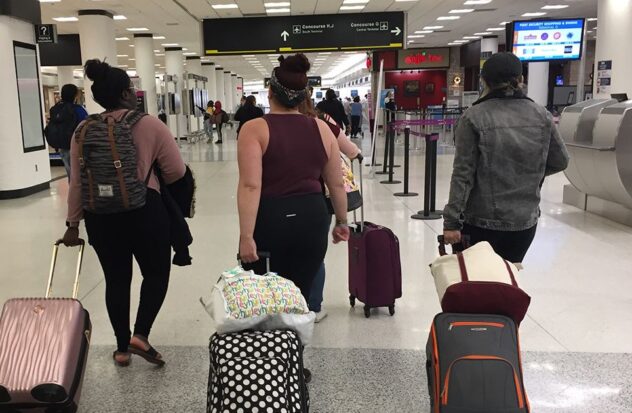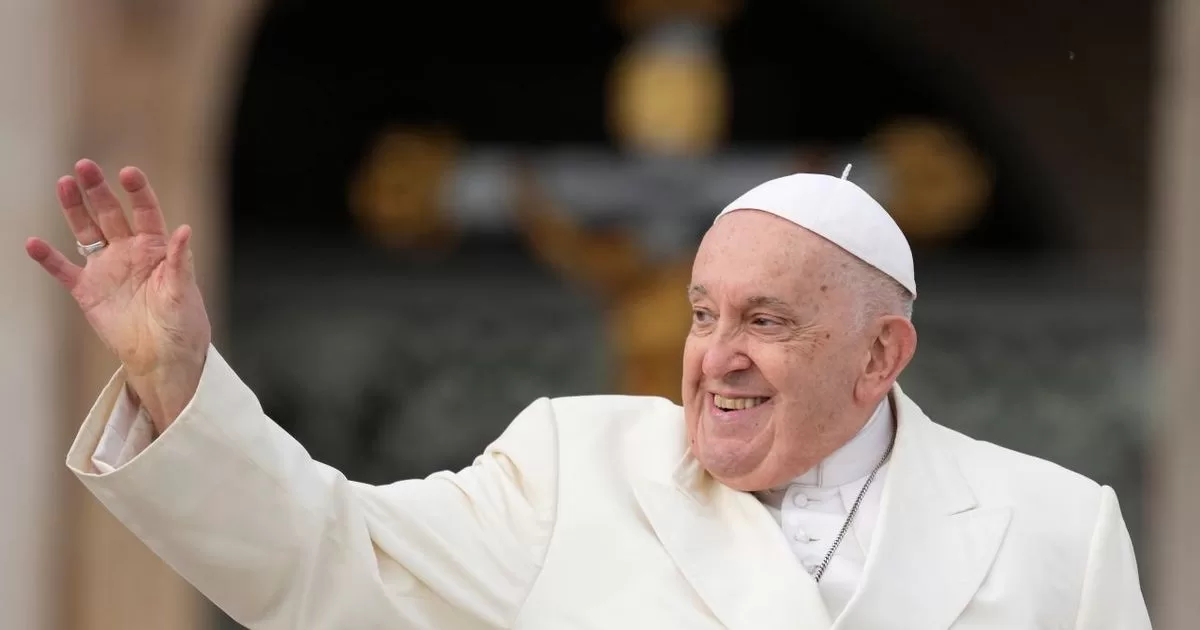HAVANA CUBA.- When you cross door number 7 of the Miami International Airport, you will see dozens of passengers carrying huge packages to the American Airlines (AA) counter. Three hours before the flight leaves for HavanaEduardo, a Cuban resident in Houston, Texas, pays $25 for each package that a terminal employee protects with nylon.
“In Cuba, those who unload the luggage are magicians. They meet the Customs officials and loot your briefcase to take anything. And if they can’t steal, they throw the packages at you so that the fragile objects break. Two years ago my television screen was smashed and an electric shaver and a video game I was carrying disappeared. “AA pays you if your luggage gets lost,” says Eduardo.
Before doing the check, passengers must fill out a rigorous electronic form issued by the Cuban authorities that collects private information such as the mobile phone number or the amount of dollars they will take to the communist island. Added to that is that when it comes to Cuba, the airline has other rules.
“AA usually charges $40 for each extra bag when flying to other destinations, but if you travel to Havana it charges $150 for the first suitcase and $250 for the second. Like the regime, AA milks Cubans as if we were cows,” says Eduardo.
An Aamerican Airlines official assures that from April to September, the low season, the number of passengers traveling to the Island considerably decreases. The payment for baggage amortizes operating losses. Many airlines have had to close. The Cuba destination is not very profitable.”
During the flight of just over 42 minutes (the Miami-Havana flight is faster than a plane trip from Miami to Tampa), some passengers complain, because AA no longer even provides water. “Before they gave Coca Cola or juice and a cookie. Now already of already. So that you can prepare yourself for the destination where you are going,” says Mirta, a Cuban exile who has lived in New Jersey for 35 years.
“I left Cuba when the USSR fell. That was never good, but with each passing year it gets worse. It’s a nightmare to live in that hell. Much of my family has been able to leave. I have a sister and two nephews left there. We have always had to bring him clothes, cell phones and money. But with this latest Díaz-Canel crisis it is the last straw. We brought lamps for blackouts, rechargeable fans, radio batteries, a device that traps flies and mosquitoes, powdered milk and food for two months. It seems like we are going camping in a mountain or visiting a country at war,” Mirta asserts.
Elvis left Cuba in 2010 and had not traveled to Cuba for six years. “It’s just that the times I’ve gone, I’ve gotten depressed. I thought I’d never come back. Luckily, most of my family has been able to leave. But every time he entered social media, distant relatives and childhood friends who still live on the island, they ask me for things as basic as a package of disposable ass or a box of chicken because they don’t have anything to eat and that breaks my heart.”
“I lived in the municipality of La Lisa, in a poor neighborhood where people take whatever they have and share it with their neighbors. Since things have gone well for me in the United States, I cannot turn my face the other way. I asked my company for two weeks of vacation, I rented several rooms at the Habana Libre hotel and, since it coincides with my birthday, I hope to give them a little happiness so that they can survive in that madness,” Elvis confesses with a broken voice.
The passenger sitting next to him advises him that when “you change money, go accompanied, carry a backpack and be paid with large bills of 500 and a thousand pesos. A month ago I was there and I sold 2,600 dollars outside to leave money for the old people and my brothers. The dollar was 395 and they gave me more than a million pesos. I was a millionaire for the first time in my life.”
The pilot of the Boeing 737 announces that he is going to land in Havana. He then makes a strange request: “The Cuban authorities request help from the passengers of the flight for public health and the care program for children with cancer.” A murmur arises in the cabin of the aircraft.
“Who was going to say it, we have gone from those insults from Fidel Castro, who told us ‘worms, scum, we don’t need them’ and that we were going to get on our knees to apologize for leaving the country, to begging for a handful of dollars to health,” said a man while taking two $20 bills out of his wallet.
When passengers enter terminal three of the José Martí International Airport, the first thing they receive is a blast of heat. “The air conditioners are turned off to save fuel due to the energy crisis,” an employee says quietly.
The customs check is quite fast. “The economic situation is so tense that the authorities have recommended that customs officials be more flexible, because thanks to the help of Cubans living abroad, people here are not dying of hunger in the streets,” says one Taxi driver looking for a client.
At the exit gate of the airport, family members hug each other excitedly. Some have not seen each other for ten or fifteen years. Elvis tells his uncle that he bought her an electric generator that recharges with the sun in case there is no electricity. He “I also brought him a portable air conditioner and two suitcases with food, powdered milk and medicines. The rulers are incapable and corrupt, they keep the people in misery and the old people are treated like human waste,” he says frustrated.
Several children jump for joy and impatiently open bags with candy and toys. If Miami did not exist, we Cubans on the Island would have invented it.


